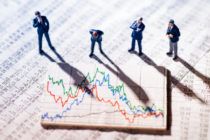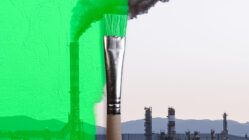We are likely to see only a short-lived value rally in 2021, with a continuing bias towards tech and particularly climate tech equities and a preference for higher risk in the fixed income sphere.
At least according to Stefan Kreuzkamp, chief investment officer at DWS, who recently expressed his views on the 2021 market at a webinar for brokers and journalists.
With regards to equities, Kreuzkamp said he expected European stocks to lag due to lower weight of high-growth stocks, particularly compared to the US.
Asian equities he deemed to be more attractive following the US Election with less trade risk under a Biden administration.
EPS recovery based on a successful vaccine roll out would see things “back to normal” by end of 2021. Any ‘value’ rallies would be short lived with rates and economic growth to remain low.
The verdict from DWS is that there will be no lasting style shift and that emphasis will be an overweight position on IT – referencing ‘big-tech’ earnings resilience in a crisis.
Green investing
Climate Tech is seen as key theme and one that will profit from rising climate commitments.
Kreuzcamp identified what he saw as the top four areas of highest greenhouse gas emissions and the likely winners in terms of investment opportunities there.
Within power generations; the companies set to benefit are solar/wind energy, smart grids and electric transmission.
Within real estate; the winners would be insulation materials, heating/ventilation/air conditioning, and lighting systems specialists.
In transport; firms attracting investors would include hybrid and electric vehicle manufacturers, renewable fuels and alternative mobility developers.
In agriculture; companies involved in irrigation systems, livestock nutrition, precision agriculture, and alternative proteins are, according to Kreuzcamp, well placed to attract equity investors.
Fixed income
Within fixed income, the focus will remain on riskier assets in 2021, especially corporate credit.
With supply set to shrink over the year, while investor demand is supportive this will be beneficial for investment grade bonds supported by central-bank buying.
DWS thinks the climate will be constructive for high yield too, with inflows expected to continue and default rates to stay on historic-average levels.
Kreuzcamp believes the limited return potential in sovereign bonds will continue, though he is more positive on emerging market sovereign bonds due to recovering growth rates and a new US government – meaning less trade uncertainties.
He suggests this is constructive for EM Credit, particularly Asian, due to a more stable macro environment
Jeroen Blokland, head of the multi-asset team at Robeco takes a similar line to Kreuzcamp. “For the asset classes, in general, we believe 2021 will be a good year for risky assets, with equities realizing above average returns in our base case,” says Blokland.
The shadow of covid
But there is a large caveat, as he explains.
“In a scenario in which a working covid-19 vaccine is not readily available to a large part of the global population, all bets are off, and all risky assets will realise negative returns.”
The Robeco team’s base case for equities is that the combination of a timely, effective vaccine with ongoing fiscal and monetary stimulus means GDP growth and, more importantly, company earnings growth continues to improve.
Earnings per share levels near those seen before the covid-19 outbreak implies growth of about 20%, which would be very healthy for share prices.
For high yield bonds, the base case is that such a recovery in company earnings means defaults would dwindle, the coverage ratios of high yield companies would improve, and spread levels would tighten.
Spreads on investment grade credits would also tighten in the base case, with some rotation out of government bonds into corporate bonds by investors looking for better yields.
The base case for local currency emerging debt is constructive as well, as the team believes there is ample room for emerging currencies to recoup heavy losses against the US dollar.
Commodities too should benefit from the return to normal trading. The rebalancing of commodity supply and demand that has already started is expected to continue, and a resurgence in oil demand as people get moving again should raise oil prices.
Blokland also echoes Kreuzcamp’s theory that the asset class expected to continue to deliver negative returns is sovereign bonds, as massive quantitative easing continues.







